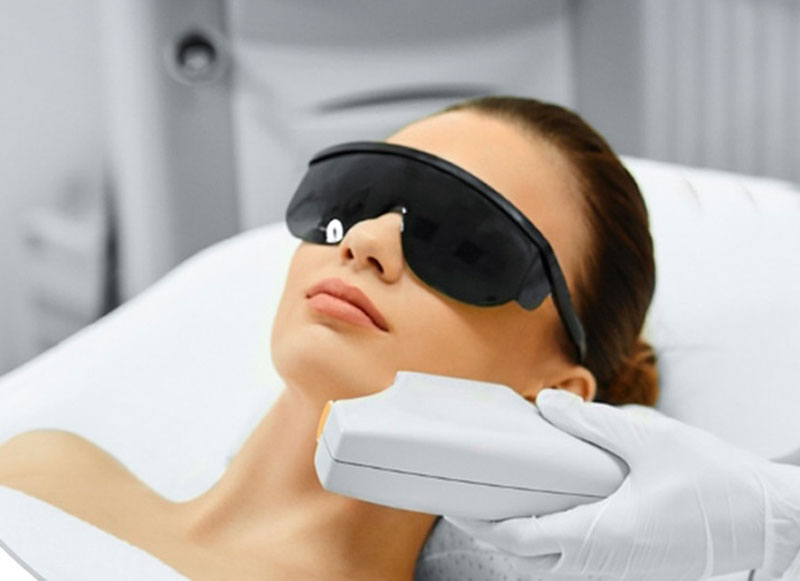Thursday Feb 19, 2026
Thursday Feb 19, 2026
Saturday, 2 April 2022 01:44 - - {{hitsCtrl.values.hits}}

|
Dr. Harsha Jayakody
|
IPL has become one of the most common treatment modalities used in Aesthetic medicine. It was first used in the medical field 25 years ago. IPL stands for “Intense Pulse Light”. A light emitting device is used to deliver an intense pulsating light at the targeted skin areas to overcome the relevant skin conditions.
An energy-based device is kept adjacent to the skin and light is extruded to deliver an intense pulse to the targeted skin cells. These light waves heat up the skin, which makes your body gets rid of the unwanted cells. IPL emits a different range of pulse light varying from 500 nm to 1200 nm wavelength which gives options to treat a whole range of ailments. The lower the wavelength, the lesser the penetration where the epidermis related conditions can be treated using 500 - 650 nm wavelengths.
This is a 20 - 30-minute procedure in which intense pulses of light are used to penetrate deep into the skin. IPL photofacial treatment can be repeated every three - four weeks. Some may get very clear skin with two or three treatments, but some may need six - eight treatments with regular intervals. Most people undergo one treatment per year or less as a maintenance treatment. Following the treatment, the patient’s skin may become a bit fiery for an hour or so but will return to normal within a couple of hours.
IPL photofacial is used for many skin conditions. According to latest publications, Intense Pulse Light can get rid of 50% - 75% of broken blood vessels in the skin which gives a cherry web appearance in some individuals. These cherry web minute vessels are treated with larger wavelengths as they need deep penetration of the skin. Photofacials are also used to treat acne and rosacea giving promising results to patients below 40 years. Among the variety of methods used to treat photoaged skin, IPL has gained significant interest due to its minimum downtime. Sunburns, age spots and other pigmentations are well treated with IPL photofacials where the thermal heat generated by light waves affects the melanin-producing cells giving a darker appearance to the skin. Photofacial treatment is also used for photo-rejuvenation. Wrinkles, fine-lines and aging appearance can be treated well with repeated IPL sessions. The principle behind the textural change of the skin with tightening effect using IPL is based on the theory that heating collagen fibres with high intensity light energy leads to re-modelling of collagen fibres. In addition, IPL directly increases collagen synthesis too.
Kamani Liyanage a middle-aged lady presented to us with multiple pigmentations over the face with fine wrinkles around her eyes and mouth areas was treated at https://mycosmeticclinic.lk/ at Piliyandala with four IPL Photofacial sessions four weeks apart. Liyanage showed promising improvement over the period of time with a younger and softer skin with enhanced glow.
Experienced clinicians know which wavelengths to be used for which conditions and the duration to give optimum results from IPL photofacials. Therefore, to treat many cosmetic related skin disorders, IPL has become the first line of treatment used in aesthetic clinics nowadays.